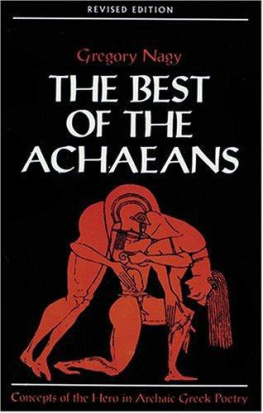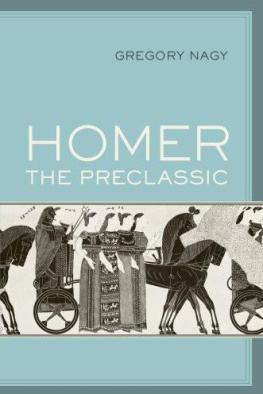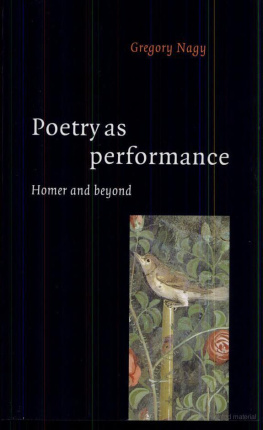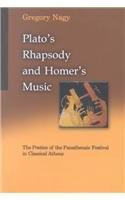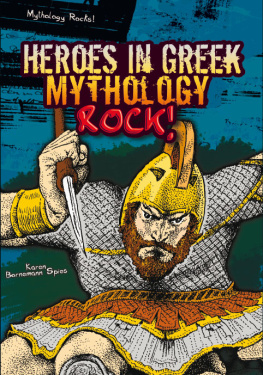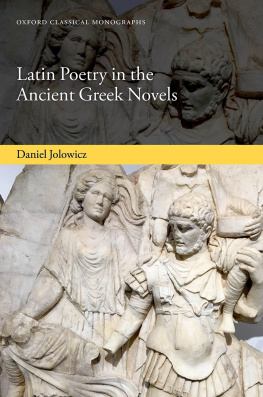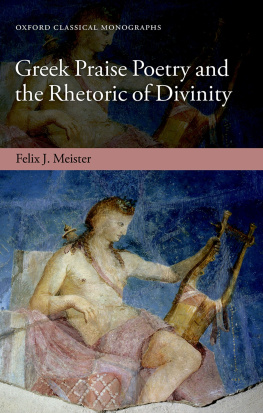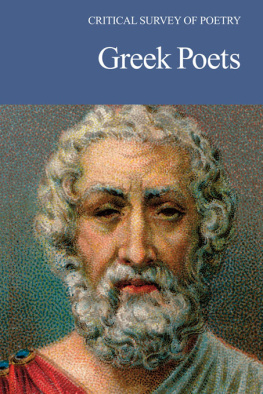Appendix
On the Forms kratai- and Akhai-
Such a formation may be the actualancestor of the attested Homeric feminine kratai, under thefollowing two conditions:
- the suffix*~-'ia-/-ia- was leveled to*-ia-
- an original combination *-ui-ie{an,2,10}-survived as *-uia-.
In the case of the second condition, we may note that there are solidparallels for the loss of * without trace in the second member ofcompound formations. Consider Greek
neo-gn-o- (from*-gn--), Indic
-bhv-a- (from*-bhu-o-), etc. Accordingly, I offer the reconstruction*krataiuia for Homeric
kratai.
as I have alsoargued in the case of kratai.
For the time being, I will simply closewith a few comments on some formal difficulties that remain.
- Fromthe evidence of Linear B texts, we see that palaio- 'not new' isprobably a thematization of palai 'near in past time' (seeChadwick 1976). Perhaps krataio- is likewise from *krataiplus -o-? But kratai- is not attested as an adverb likepalai. Or perhaps krataio- is *krata plus-iio- (cf. adverb karta)? But how to explainthe accent of -iio-?
- A reconstruction like*Akhaiuio may perhaps not account properly for theLatin borrowing Achu; of course, the latter form may besimply the reflex of Akhaioi, with the u serving as hiatusbreaker. Compare Latin ~ig from Argeoi (the Greek has nou before {hp,v7}-oi); this Latin borrowing is attestedearly (e.g., Plautus), and I see no reason to insist on an analogical insertionof u by way of Achu.
- Another problem is that thereconstruction *Akhaiui- would fail to account for*Akhaiu-; this form, however, is not attested to my knowledgein Greek, unless we read the Cypriote spellingti-mo-wa-na-ko-to/sa-ka-i-wo-se (Masson 1961 no. 405.1) as*Timouanaktos Akhaiuos. This reading is vitiated, however, bythe necessary assumption that word division has been neglected between thepatronymic (genitive) and the hypothetical ethnic (nominative). In fact, worddivisions are faithfully observed in attested Cypriote spelling (word-final-s spelled -se). Also, there is an actual word divider betweenti-mo-wa-na-ko-to and sa-ka-i-wo-se. Discussion in Masson1961.69. Besides, etymologically genuine uo can be spelled oin Cypriote (Thumb/Scherer 1959.160), and we may therefore expect thereverse as well (uo for o).
- If indeedAkhaio- was never *Akhaiu-, then an argumentcould be made for its morphological parallelism with krataio-even without positing compound formations.
Notes
.
and Risch 1974.144.
.
For a survey of id-stem feminines built from o-stemadjectives: Meier 1975.46-47.
See Kastner 1967.100, who infers that the i-stemshave here precluded the building of -stems. In compounds, ofcourse, the preclusion of feminine -stems by i-stems is ageneral rule: e.g., haplo-is andhaplo-os/-on (see Meier, pp. 47-50).
Meier, p. 47.
.
; on which see Wackernagel 1953 [= 1914]1167-1168 and Meier 1975.47n110.
.
See also the arguments of Bader 1976 for thecoexistence of radical *ui- and*u- (from *ui-{an,2,10}-), which she positsto explain *ui-ro- (as in Latin uir,Tocharian A wir, Irish fer, Old English wer, etc.)compared to *u-ro- (as in Indic vra-, Lithuanianvy'ras, etc.). Note that the Italic languages seem to attest both*ui-ro- (Latin uir) and*u-ro- (Umbrian ueiro/uiro; Volsciancouehriu from *ko-urid); see Bader, pp. 207-208.
See Wackernagel 1905.98-99 and 1930.187; compare alsothe radical element bh- which may be either -bh- or-bh...- as the second element of bahuvrhi compounds.
), we find only two othersure examples: ks andls, neither of which has a definiteIndo-European pedigree. {sy,be}
). But here the original stemmay have been -i-: cf. orneon from*rneion.
For the cognate type of compound feminine in Indic:Wackernagel/Debrunner 1954.388-390.
See Kuryowicz 1968.213. Cf. also Indic feminine-bhv-- besides -bh- in compounds (Wackernagel1930.197 and Wackernagel/Debrunner 1954.387-388).
.
.
.
.
).
Wackernagel 1953 [= 1914] 1176.
Ibid.
The form euplokamdes (+Akhaiai) need not be an ad hoc feminine created on the model ofeuknmdes (+ Akhaioi), paceRisch 1974.144 and Meier 1975.65. Even if it were so, however, it does notfollow that the entire combination of euplokamdes +Akhaiai was created on the model ofeuknmdes + Akhaioi. The twocombinations function as a set containing traditional variants, and thepossibility remains that the older noun may have attracted the newer epithet.
Presumably *-uiid- and*ui- yield *-uid- and*-u-.
For this type of derivation: Meier 1975.26-29.
. For an attempt at establishing aregional distinction in the prehistoric usage of Akhaiid- andAkhaii-, see Aitchison 1964.
West readsAkhis, which represents anapparent phonological development fromAkhaiis: Schmidt 1968.8n24.
Alan Nussbaum and Jochem Schindler have kindly offeredme their advice on the available evidence. They are of course not to be heldaccountable for the views I have expressed.
Chapter 1
The First Song of Demodokos
, the description of a poet's performance as actually narrated byHomeric Epos. In this description we may discover a vantage point from which weare allowed an instant glimpse into the artistic unity of the Iliad andthe Odyssey combined.
Greekepic delivers the narrative directly in the persona of the poet. The invokingof the Muses at the start of a Greek epic is the tag of the poet's ownperformance. The immediacy of performance, however, is counterbalanced by anattitude of remoteness from composition. The performer feels himself distantenough to intimate that the message of his composition comes not from him butfrom tradition. As the poet tells the Muses before he launches into theCatalogue of Ships:
humeis gar theai este,pareste te, iste te panta,
hmeis de kleos oionakouomen oude ti idmen
You are goddesses; you are always present, and you know everything;
but we [poets] only hear the
kleos and know nothing.
Accordingly, the poet invokes the Muses to tell him how it all happened ( If you performheroic deeds, you have a chance of getting into Achaean epic. The Achaeansinger of tales is in control of the glory that may be yours.
He is independent of seeing the here and now;he need only hear the kleos. For him, a thing likeblindness cannot help but serve as a proof, a veritable emblem, of his artisticindependence.
), from a story thathad a kleos of great impact "at that time":
oims ts tot' ara kleosouranon eurun hikane ...
from a story-thread that had at that time a
kleos reaching up to the vast heavens ...
viii 74
5. I have not yet reached the point where I can examine what Demodokosthen sang. Suffice it now to observe that he performs not just one but threeseparate compositions in Odyssey viii, all of them pertinent to thethemes of the overall Odyssey. What is more important for now, theperformances of the idealized poet seem to be themselves idealized within thenarrative. Outside the narrative, on the other hand, the composition of theOdyssey itself is idealized in such a way that it has becomeunperformable. Not only for the Odysseybut for the Iliad

